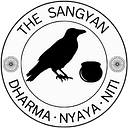Ulgulan Talks! : Interview with Alma Chopra
In this fourteenth interview of The Sangyan’s ‘Ulgulan Talks!’, an endeavour to voice the issues of the larger interest of ‘We, the People’, Abhishek (the interviewer) talks with Alma Chopra, a young woman from Gurugram (India) primarily regarding her lived experiences with disability and impacts of climate change.
Alma is a Disability Rights Activist and graduated with a Bachelor of Arts and Bachelor of Law. She can be reached at her LinkedIn profile.
This interview was conducted in December 2023 through online mode in written format. The due informed consent of the interviewee has been taken before the publication of the blog. Further, the ‘Right to be Forgotten’ of the interviewee shall be respected.
Hello Alma, please talk about your life journey in some detail for our readers.
I’m a socially conscious entrepreneur, motivational speaker, life coach, and disability advocate & inclusion ambassador. But out of all these work tags, I’m a fighter and survivor because I have been surviving a neurological condition called Cerebellar Ataxia Conqueror over the last two decades.
At the tender age of 10, destiny introduced me to cerebellar ataxia, an uncommon condition that affects balance and coordination, causing movements to become unsteady.
Even though Ataxia tried to limit what I could do, my spirit burned bright, pushing aside boundaries and embracing life’s beauty with unwavering determination. I persevered through relentless battles, refusing to relent.
Through the aid of exercises, reiki, meditation, and various metaphysical disciplines, I unearthed the resolution. And I kept my footing firm, undeterred even on the slipperiest of grounds.
Today, I teaches people how to stay grateful to life and God even in the face of adversity. Through my teachings, I aim to shift the perspective of society, encouraging them to view disabilities not as limitations, but as unique abilities that can bring something extraordinary to the table.
I envision a world where the acceptance of differently abled individuals is an everyday norm. This vision extends beyond mere acceptance to a realm where accessibility and inclusivity are not just prioritized but effortlessly woven into the fabric of our communities.
Please tell us about your condition/disability and comorbidities in detail.
I have had Cerebellar Ataxia since the age of ten.
Does climate change and its induced disasters (read extreme weather and climatic conditions like heatwaves, cyclones, floods, etc.) have any impact on your physical health/condition? If yes, please illustrate on the ways it affects you.
No
Does climate change and its induced disasters (read extreme weather and climatic conditions like heatwaves, cyclones, floods, etc.) have any impact on your mental health/condition? If yes, please illustrate on the ways it affects you.
No
What do you think about climate change and its induced disasters (read extreme weather and climatic conditions like heatwaves, cyclones, floods, etc.) acting as a threat multiplier and resulting in capability deprivation (like loss of livelihood, migration, or additional medical expenses, etc.)? Please provide a personal account, if plausible.
Climate change is a significant global concern, and its impact on extreme weather events can indeed act as a threat multiplier. The associated disasters often exacerbate vulnerabilities, leading to capability deprivation such as loss of livelihood, forced migration, and increased medical expenses. While I don’t have personal experiences, the broader understanding is that addressing climate change is crucial for mitigating these far-reaching consequences and protecting communities worldwide.
Please tell about any measure/action you take to adapt and mitigate the negative impact of climate change and its induced disasters (read extreme weather and climatic conditions like heatwaves, cyclones, floods, etc.) in your life to avoid worse-off experiences (like avoid travelling during extreme weather conditions or certain medication, etc.)? Please provide a personal account if plausible.
I am adapting my personal habits, such as conserving energy or using public transportation, contributes to mitigating climate change.
What else you think that needs to be done to counter the worse-off experiences of climate change and its induced disasters (read extreme weather and climatic conditions like heatwaves, cyclones, floods, etc.) and to counter the disproportionate impact of climate change and its induced disasters on persons with disability concerning their physical and mental health, work and livelihood, hunger and poverty, disability inclusive disaster risk reduction, etc. to ensure disability inclusive climate justice.
Achieving disability-inclusive climate justice involves implementing inclusive policies, ensuring accessibility in infrastructure and communication, providing education and training, offering healthcare support tailored to diverse needs, promoting inclusive employment practices, engaging the disability community in decision-making, fostering international collaboration, and improving data collection methods.
Any further comment you want to make in respect to the intersection between climate change (and its induced disasters) and disability.
No
This was Alma Chopra talking about her life journey and lived experiences with disability and climate change. We at The Sangyan and Ulgulan Talks thank her for giving her precious time and an opportunity to know about her and her lived experiences.
Adv. Abhishek Kumar is an NCPEDP-Javed Abidi fellow on Disability currently working on the “Impact of Climate Change on Persons with Disabilities. The curator can be reached at <abhishek.ncpedp@gmail.com>.
The interview has been published on the blog of The Sangyan as part of its public engagement and discourse initiative called ‘Ulgulan Talks!’.
